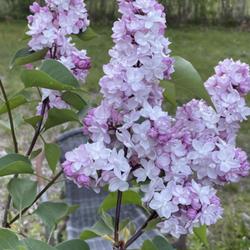(Reprinted with permission from the March 17 issue of garden.org, the online newsletter of the National Gardening Association.)
Introduction
Classic spring-flowering shrubs, lilacs produce abundant, colorful flower clusters with a sweet, memorable fragrance.
About lilacs
Lilacs are hardy, easy-care plants, and the fragrant flowers are good for cutting and attractive to butterflies. Flower colors include blue, lavender, pink, red, purple, yellow, and white, depending on the variety. Most lilacs grows 5 to 15 feet tall and wide, depending on variety.
Special features of lilacs
Easy care/low maintenance
Fragrant
Good for cut flowers
Attracts butterflies
Choosing a site to grow lilacs
Select a site with full sun and moist, well-drained soil.
Planting Instructions
Plant in spring or fall. Space plants 5 to 15 feet apart, depending on variety. Dig a hole only as deep as the root ball and 2 to 3 times as wide. If your soil is in very poor condition, amend the soil you’ve removed from the hole with a small amount of compost. Otherwise, don’t amend it at all. Carefully remove the plant from the container and set it in the hole. Fill the hole half full with soil, then water it well to settle the soil and eliminate air pockets. Let the water drain, then fill the remainder of hole with soil and water thoroughly.
Ongoing Care
Apply a layer of compost under the plant each spring, followed by a 2-inch layer of mulch to retain moisture and control weeds. Water plants during the summer if rainfall is less than 1 inch per week. Prune lilacs immediately after flowering, removing dead and broken branches, then cutting back as necessary to maintain the desired size and shape. Overgrown lilacs can be pruned back by as much as one third.
SSSN Editor’s note: Snip some lilacs from your bushes and fill your home with their sweet, calming fragrance for two weeks every spring.





